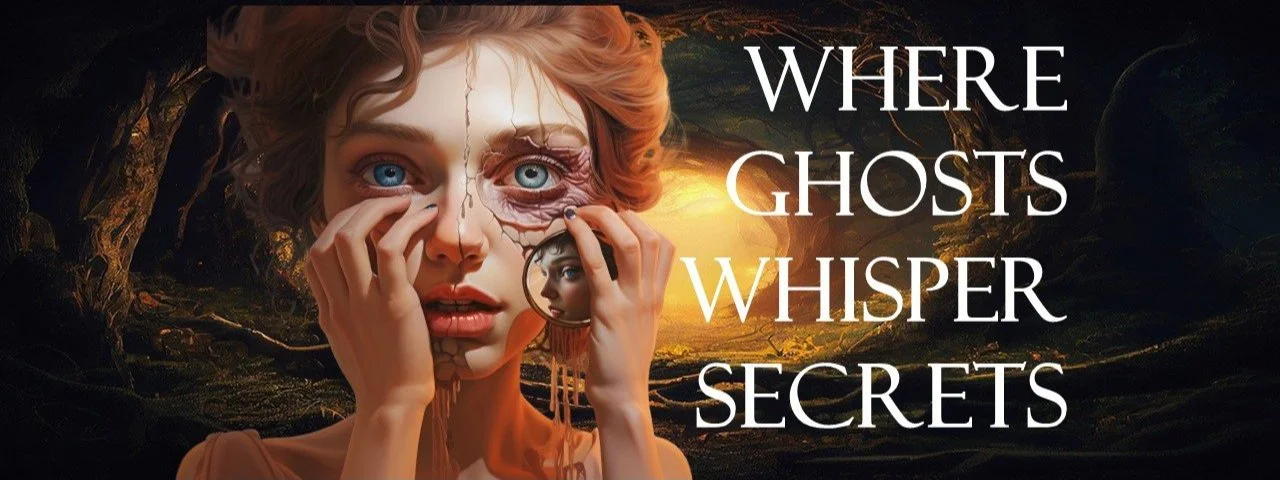Interview on The Cosmic Vending Machine . . .
/Recently, Philip Mazza met with a reviewer from Booklist to discuss his book The Cosmic Vending Machine of the Galactic Laughingstock.
———
Booklist: First off, congratulations on the book. The Cosmic Vending Machine of the Galactic Laughingstock is a riot—equal parts biting satire and straight-up cosmic absurdity. What sparked the idea of alien tourists watching Earth like it’s a bad reality show?
Philip Mazza: Thank you. Honestly, it came while my wife and I were on a cruise to Hawaii and French Polynesia and I thought, “If I were an alien and took a cruise to this planet, I’d assume it was performance art.” From there, the image of this cruise ship orbiting Earth—full of bemused aliens with cocktails—just wouldn’t leave me alone. It was my way of making sense of the chaos, and maybe laughing through the existential dread.
Booklist: The GLOMP-77 is such a vivid setting—half cruise liner, half observation deck for cosmic rubbernecking. How did you develop the tone and world of the ship?
Mazza: I wanted the GLOMP-77 to feel like a cross between a luxury cruise and an absurdist lecture hall. There's a glittery nihilism to it—everyone on board is either bored, drunk, or trying to explain Earth to their offspring. The tone had to match that surreal mix of gallows humor and awe. So, I leaned into that feeling of “we’ve seen too much, and we’re still watching.”
Booklist: Let’s talk about the Trixlian family. They’re essentially conducting a field trip with each excursion on “how not to run a civilization.” Were they always part of the concept?
Mazza: They came in pretty early. I loved the idea of reptilian intellectuals giving their kids a crash course in human dysfunction. They’re this alien analog to the sitcom family at a theme park, trying to turn chaos into a teachable moment. Their academic, almost clinical lens made it easier to expose the bizarre logic we often accept without question.
Booklist: The humor is razor-sharp, but there’s clearly a layer of genuine frustration underneath. Were there any topics or moments that felt particularly cathartic to satirize?
Mazza: Oh, plenty. There’s a scene where the aliens are baffled by a congressional hearing about whether hurricanes are a hoax—it felt good to write that. Also, the fast-food feuds. I mean, when people are camping overnight for a chicken sandwich, you have to ask some questions. Writing those scenes was therapeutic. It was a way to scream into the void with a smile.
Booklist: Xarth is one of the standout voices in the book—a weary, disillusioned traveler who once believed in humanity. He’s a little tragic but also hilarious. What inspired his character?
Mazza: Xarth is basically the love child of a jaded starfleet officer and a dive bar philosopher. He’s been around, seen civilizations rise and fall, and somewhere along the way, Earth broke his heart. He represents what happens when optimism curdles into resignation—but he’s still sitting at the bar, still watching. There’s a bit of me in him, to be honest.
Booklist: And then there’s Zog—the tentacled bartender who’s seen it all. Is he your alien version of the all-knowing bartender trope?
Mazza: Exactly. Zog was a joy to write. He’s got more appendages than patience, and he doesn’t pretend to understand humans—he just pours drinks for those trying to forget them. He’s sort of the GLOMP-77’s emotional support bartender. The kind of character who says more in silence than the loudest ranter on Earth.
Booklist: Your satire doesn't just aim at politics or media—it goes after deeper cultural absurdities. Was it important to you to keep the scope broad?
Mazza: Absolutely. While politics and media make easy targets, I wanted the book to ask a bigger question: what kind of stories do we tell ourselves about ourselves, and what do they reveal? Whether it's pop culture, school board meetings, or billionaires launching phallic rockets, it’s all fair game. I think satire works best when it’s panoramic—and when it punches up.
Booklist: There’s a moment in the book where the Trixlian kids are stunned to learn that humans once walked on the Moon, and now argue over cartoon mascots. Was that one of your core themes—this decline in ambition?
Mazza: That moment is central, yeah. I think there’s a collective amnesia at play in modern society. We did these incredible things—moon landings, global cooperation—and now we can’t agree on basic facts. That’s tragic, but also wildly absurd. The alien kids are like, “Wait, they did what in 1969? And now they’re livestreaming slap fights?” It’s both funny and depressing—and that’s the sweet spot I aimed for.
Booklist: What’s the reception been like so far? Are readers responding more to the comedy or the critique?
Mazza: It’s been a mix, and that’s perfect. Some people are just enjoying the ride—laughing at the ridiculousness. Others see it as a mirror, however warped. I’ve had readers say, “I laughed the whole time and then felt a weird sense of existential dread,” which is basically a five-star review in my book.
Booklist: The title alone is pretty unforgettable. How did The Cosmic Vending Machine of the Galactic Laughingstock come about?
Mazza: It started as a joke—just a placeholder title while I worked on the manuscript. All I could think of was an alien child trying to buy an earth relic from a vending machine that sold artifacts from those planets labeled as the “galactic laughingstock.” Of course, his mother would not allow it. It would be a waste of money, of course. But at the end, he almost gets it. The more I wrote, the more it all made sense. Earth is the vending machine, and the galaxy is watching us like a blooper reel. Plus, let’s be honest, who wouldn’t want to pick up a book with a title like that?
Booklist: Any plans to revisit this universe? A sequel? A spinoff? GLOMP-78, perhaps?
Mazza: I’m tempted. There’s definitely more chaos in the cosmic vending machine. I’ve got notes for a spinoff centered on Zog’s memoirs—working title: Mixology at the End of the Universe. We’ll see. For now, I’m just thrilled people are enjoying the absurdity.
Booklist: Final question—do you think humanity has any hope? Or is the livestream of our downfall just too good to cancel?
Mazza: I think hope is a weird, stubborn thing. Even Xarth, for all his eye-rolling, keeps watching. Maybe that’s what hope is—not naive optimism, but the willingness to pay attention. The livestream might be chaotic, but somewhere between the rants and reality shows, there’s a signal worth tuning into. Or at least worth laughing at.
Booklist: What is your plan for 2025. Any new releases?
Mazza: Later this year, I’m hopeful to have three new releases, books I’ve been working on. I’m one chapter away from the fourth Harrow Saga book The Child of Fire. Also, I plan on completing Gideon, Rex and Mother late in the year.
Booklist: You maintain an impressive writing output. Could you elaborate on your daily writing routine?
Mazza: I find that starting my day with writing allows for significant progress. I typically aim for approximately 4,000 words in the early morning hours. I then take some time to do other things. The late afternoon is then dedicated to the revision process.
Booklist: Is this a consistent daily practice?
Mazza: Yes. I generally rise around 5:00 AM and dedicate my time to writing until about 11:00 AM or noon.
Booklist: Thanks, Phil. The Cosmic Vending Machine of the Galactic Laughingstock is a brilliant, hilarious reminder that sometimes you’ve got to look at Earth from orbit to see it clearly.
Mazza: Thank you. And remember—tip your alien bartender.




